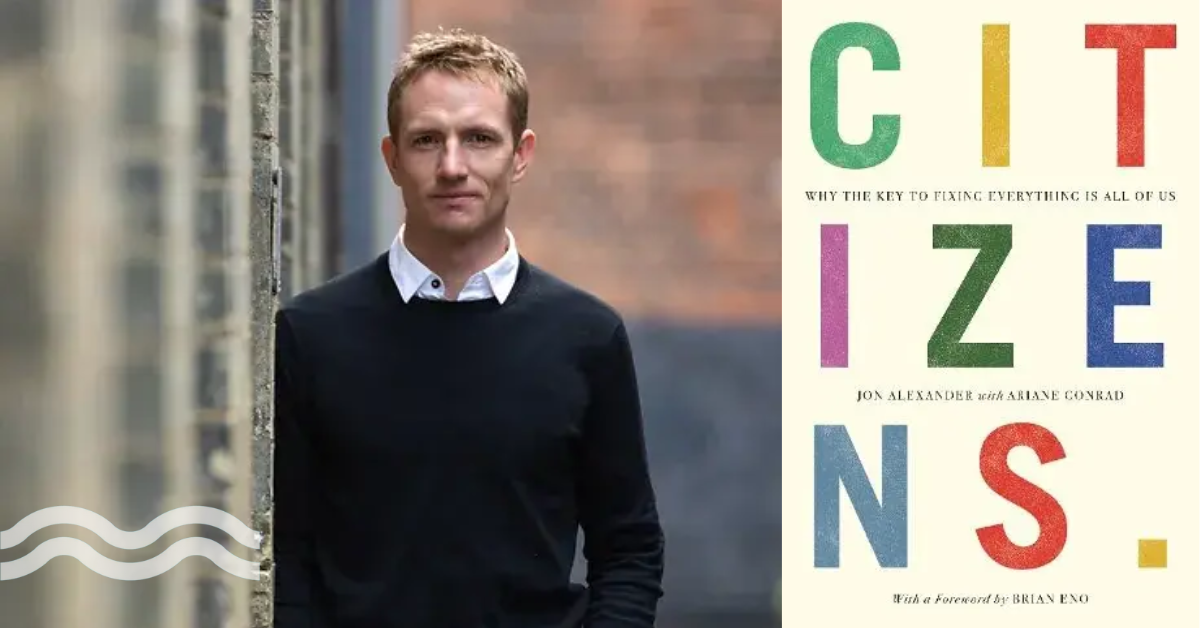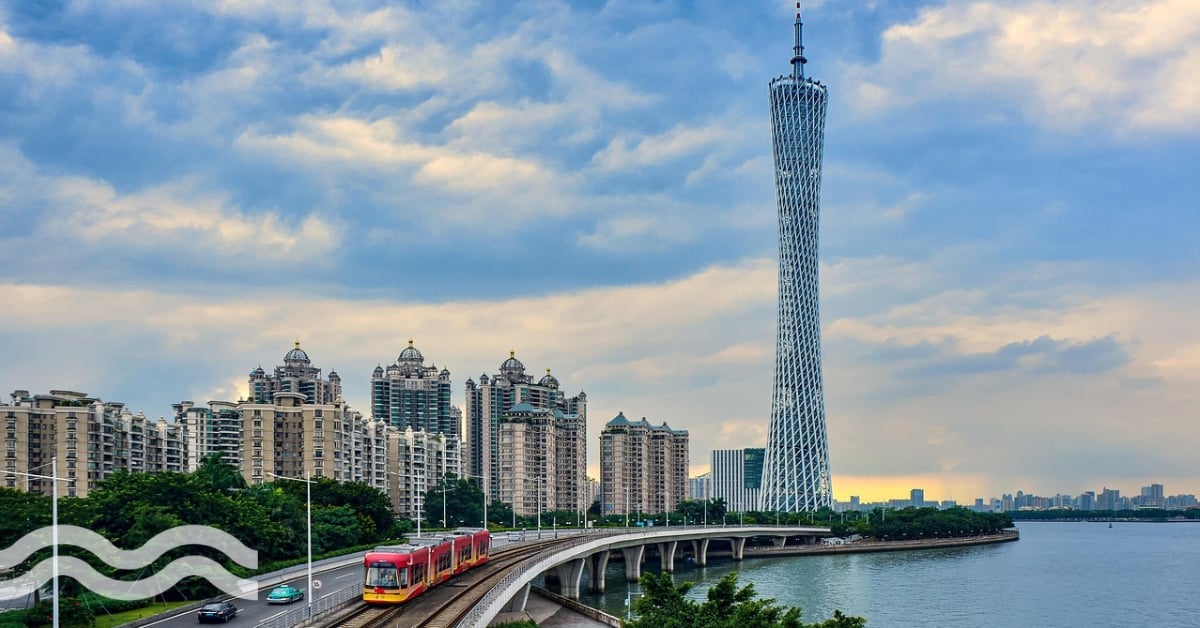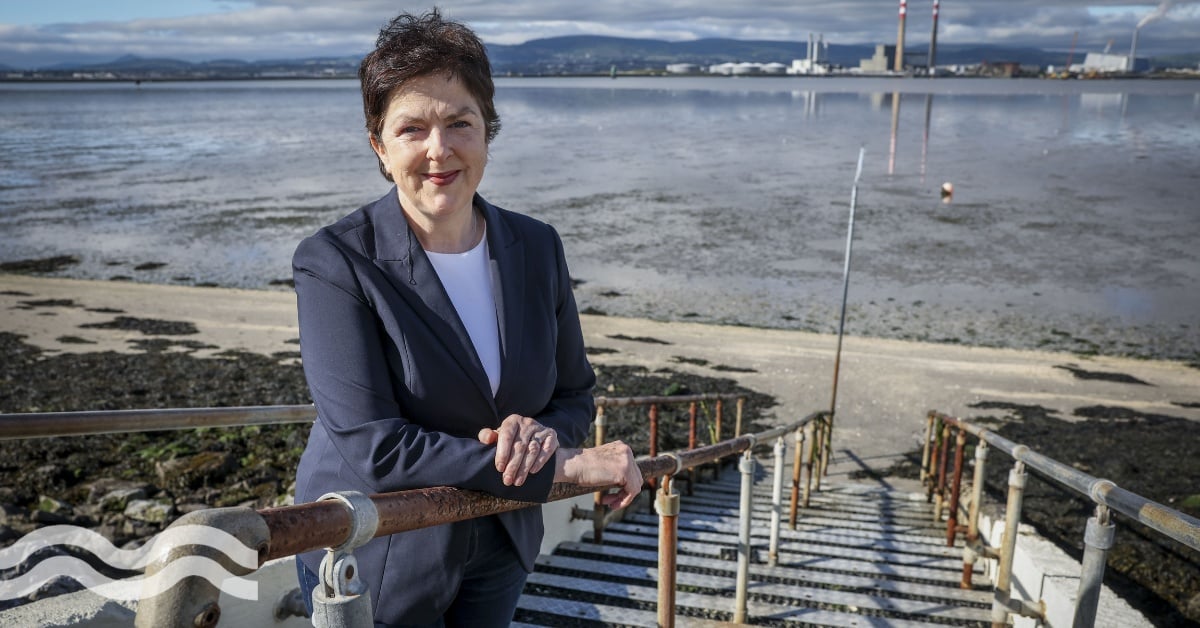VIDEO: Jon Alexander on why citizens are central to water change

Author Jon Alexander talks about the role of people to help shape the future of water supply. Talking to Aquatech Online on the side-lines of the Northumbrian Water Group (NWG) Innovation Festival, he describes how people have evolved, from subjects to citizens and looks to the example of giving a river personhood status in New Zealand.
Shifting roles and shared responsibilities
Society is undergoing a seismic shift, and with it, the way we interact with our environment. Jon Alexander, author of 'Citizens: Why the key to fixing everything is all of us', offers fresh insights into this transformative journey.
In an engaging conversation with Aquatech Online, he delves into the evolving relationship between humanity and water, the role of citizens in shaping our water future and the remarkable example set by New Zealand.
“We can't any longer live in a world where we are just consumers,” the author states, as he delves into the heart of the matter.
Stepping back from the water industry, he urges us to question our role and engagement with the natural world. In a time of challenges that demand collective solutions, he emphasizes the need for a unified effort. "We need to tap into the ideas and energy of everyone," he notes, highlighting the potential for innovative breakthroughs when diverse perspectives converge.
The water industry finds itself at a pivotal crossroads. Alexander acknowledges the serious questions faced by water sector companies but reminds us that everyone has a stake in the narrative.
“The age-old notion that we can endlessly turn on the tap with no consequences is no longer tenable. We can't be protected from the costs any longer," he asserts, underscoring the importance of understanding the symbiotic relationship between individuals, society, and water systems.
A lesson from New Zealand
One of the most intriguing aspects of Alexander's perspective stems from New Zealand's unique approach. In 2017, the country passed a groundbreaking law granting personhood status to the Whanganui River. The law declares that the river is a living whole, from the mountains to the sea, incorporating all its physical and metaphysical elements.
Reflecting on the legal personhood granted, he delves into the deeper wisdom behind this decision.
“The river's newfound status isn't just radical; it's rooted in a profound understanding of our interconnectedness with nature. The indigenous Maori tribes' belief that they are part of the river and the river is a part of them lays the foundation for redefining our relationship with water,” he says.
From consumers to citizens
Alexander's ideas are invigorating, especially when applied practically. He suggests shifting the conversation about water from one centered on individual impacts to one rooted in collective care.
"We could start from a place of shared love for the river," he envisions, emphasizing the potential of communities rallying together to safeguard our water resources. Transitioning from viewing ourselves as passive consumers to engaged citizens, he calls for reinvigorated connections and collaborative actions.
"How can we involve people as communities? How can we mobilize them to care for their nature?" With a belief in humanity's capacity for positive change, he champions the idea that individuals, acting as interconnected citizens, can be a driving force for a sustainable water future.
The road ahead
Alexander's perspective leaves us with a powerful takeaway: our relationship with water is evolving.
It's a shift from being detached consumers to active participants, from overlooking nature's voice to recognizing it as intrinsic to our own. The water story is no longer confined to isolated chapters; it's an inclusive narrative, where each citizen becomes an author of change.


